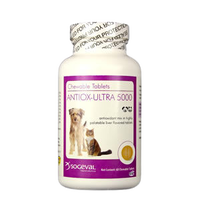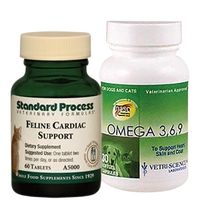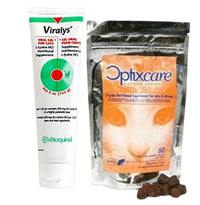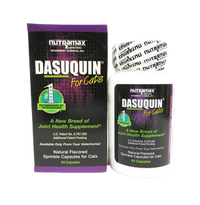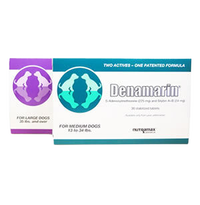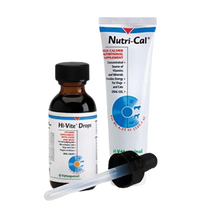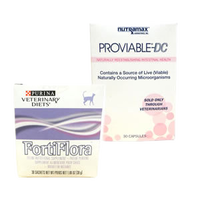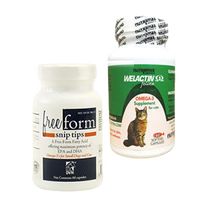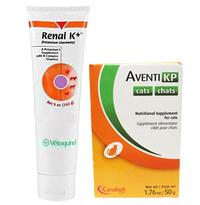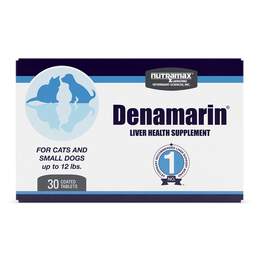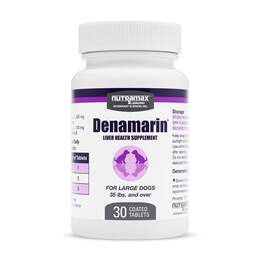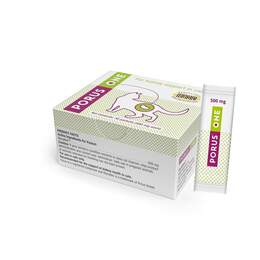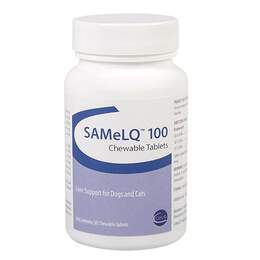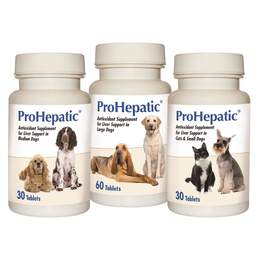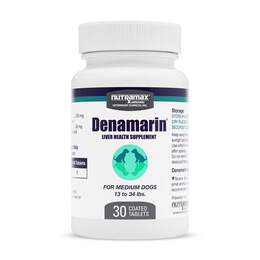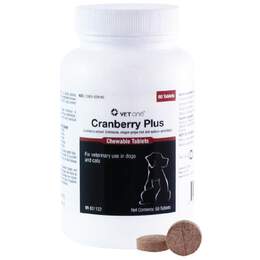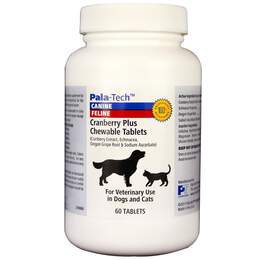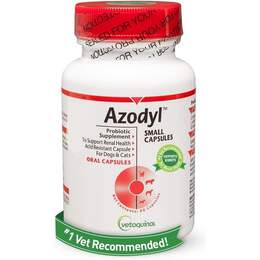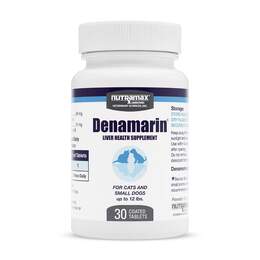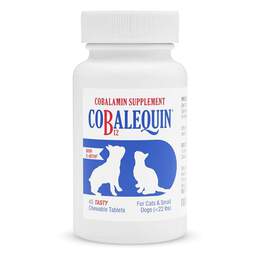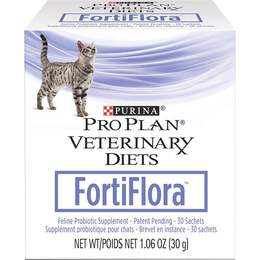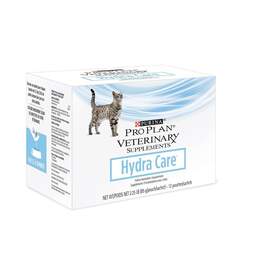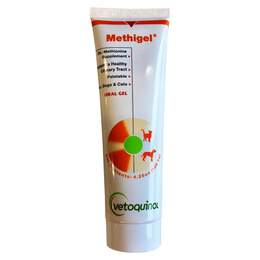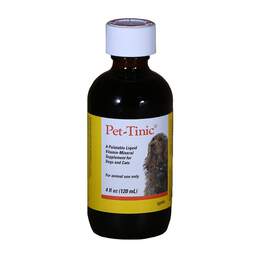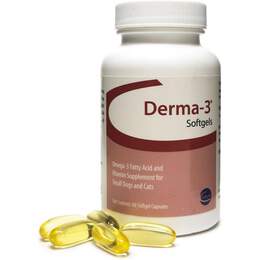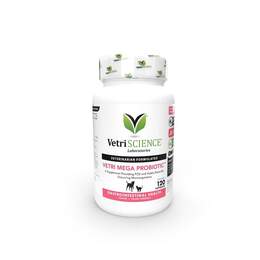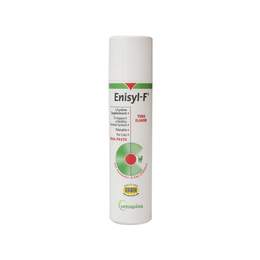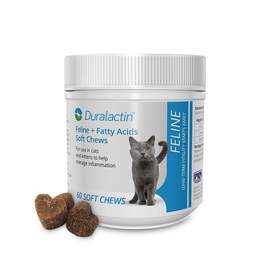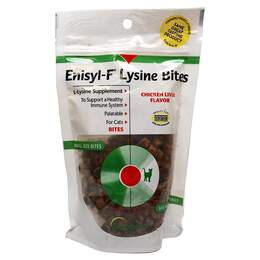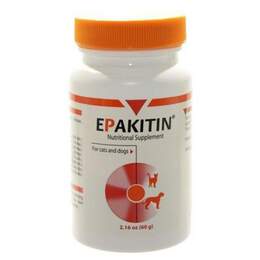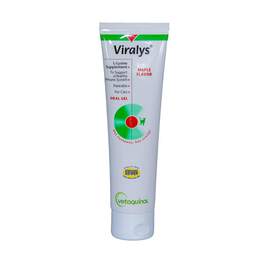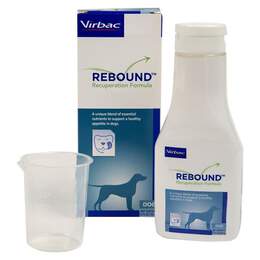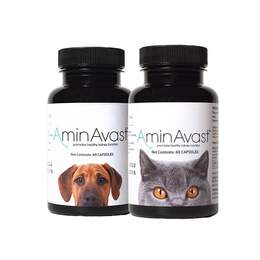Cat Supplements
Featured Categories
Keep your cat happy and healthy with cat vitamins and supplements. Just like us, cats need a healthy, balanced diet and the right vitamins to prevent health conditions. While the majority of your cat's nutrition comes from their diet, supplements for cats can give them the antioxidants, vitamins, minerals, and probiotics their diet may lack. Various cat supplements can improve conditions involving your cat’s joints, immune system, heart, and liver. Cat multivitamins can supplement their nutritional needs and help maintain their overall health.
Importance of Cat Vitamins and Supplements
You treat your cat like family, and that means you want them to have the best life they possibly can. One of the best ways to do this is to make sure your cat has the best nutrition from kittenhood to old age.
It starts with the best food you can give your cat and the best healthcare to ensure their quality of life. Just like you may take vitamins and supplements to support your best health, and you can give your cat vitamins and supplements to support their general health as well as help manage conditions such as arthritis and aging joints.
Cats need the right amount of the right nutrients to achieve optimal health. And although cat food is formulated to meet all their nutritional needs, there may be times when cat supplements are needed to bolster their health.
If your cat is recovering from an illness or injury or suffering from a chronic condition, vitamins and supplements are especially helpful for boosting their immune system. For example, a supplement such as Denamarin can help support the liver. Some diseases inhibit the absorption of nutrients and so require supplementation. Pregnant cats and cats with allergies may also need vitamins or supplements. Speak with your veterinarian to determine if your cat's nutrition needs supplementation.
What Types of Cat Vitamins and Supplements Are There?
Vitamins and supplements for cats are available in many different forms, including tablets, soft chews, oral gels, and water additives that make giving your cat supplements easy. There are three main categories of vitamins and supplements for cats.
Omega-3 Fatty Acid Supplements
Omega-3 fatty acid supplements for cats contain anti-inflammatory benefits and can also promote healthy skin and coat. The best essential fatty acids for cats are those derived from animal sources, such as krill or fish oil. Animal-sourced fatty acids have EPA and DHA and are easily absorbed by your cat's body.
Vitamins and Multivitamins
Cat vitamins usually contain the following:
- Vitamin A
- Vitamin D
- Vitamin E
- B vitamins
- Taurine, an amino acids
You can find vitamins in powder, gel, pill, tablet, or liquid forms. Soft and easy-to-digest gel supplements are the most palatable for cats.
Probiotics
Probiotics are beneficial bacteria that help increase the amount of healthy microorganisms in your cat's gut. When your cat's gut is healthy, they have less inflammation, and their immune system is stronger.
Vitamins & Supplements for Kittens
Kittens grow and develop at a rapid pace. They have higher caloric needs than adults and need more fat and protein to grow. They need more calcium and phosphorus, and these minerals may need to be supplemented in the correct amount. Under- or over-supplementation can be harmful to your kitten's health. Speak with your veterinarian before you give your kitten any additional vitamins or supplements.
Important Features to Consider When Choosing Cat Supplements
There are a few important features cat vitamins and supplements should have. Here's what to look for when choosing a high-quality vitamin or supplement for your cat:
Ingredients. Make sure the cat supplements you select have the right ingredients and in the right amount, to support your cat's nutritional needs. Your veterinarian can guide you in choosing an appropriate vitamin or supplement that is right for your cat.
Quality. When buying cat vitamins and supplements, make sure to select one from a manufacturer you trust. If you are not sure, ask your veterinarian to recommend one to you, or look for vitamins that have been certified by an independent organization.
Type of supplement. Cat vitamins are available in several forms, such as powder, liquid, tablets, pills, and chews. Consider quality, convenience, and ease of use when choosing which one to buy for your cat. Each cat is different, and while one might readily take a chew, a liquid might work better for another.
Form. Cats are notorious for being picky eaters. If this describes your cat, look for a vitamin or supplement in a form they'll readily take.
FAQs About Vitamins and Supplements for Cats
Do cats need vitamins and supplements?
While a balanced diet should keep your cat healthy, if your cat has an underlying condition, they may need a supplement to support their health. Your veterinarian can advise you on any supplements or vitamins that can improve your cat's health and wellbeing.
What vitamins should cats have in their diets?
Cats require a wide array of vitamins to maintain optimal health. They need vitamin A to support their vision and strengthen their immune system, vitamin D to support healthy bone development, and the antioxidant vitamin C. Vitamin K is also important since it plays a role in forming bone proteins. And B complex vitamins also play a number of important roles in the body.
Can you give your cat too much of a vitamin?
The majority of vitamins are water-soluble, and any excess passes through your cat's body and into their litter box. However, some vitamins stay in your cat's body and can cause toxicity if they accumulate due to over-supplementation. Vitamins A, D, E, and K are fat-soluble, so they may accumulate and remain in your cat's body for a long time.
What are the best vitamins for cats?
Each cat is different, and the vitamins they should take depends on the state of your cat's health and their individual nutritional needs.
Can you give cats vitamins made for humans?
No. Vitamins made for humans are formulated to meet our needs. They are generally too strong for cats and can be dangerous and potentially harmful.
Should my cat take a multivitamin?
Giving your cat a multivitamin is a decision you and your veterinarian should make together. If your cat is eating a balanced diet that meets their nutritional needs, it may not be necessary but can be given as bonus nutrition. A cat multivitamin can ensure they are getting the proper amount of taurine, probiotics, and omega fatty acids.


